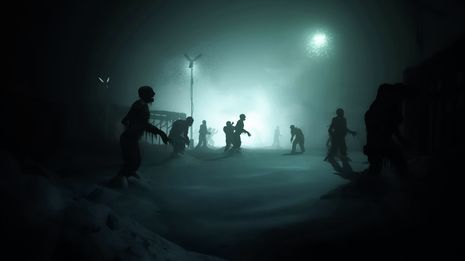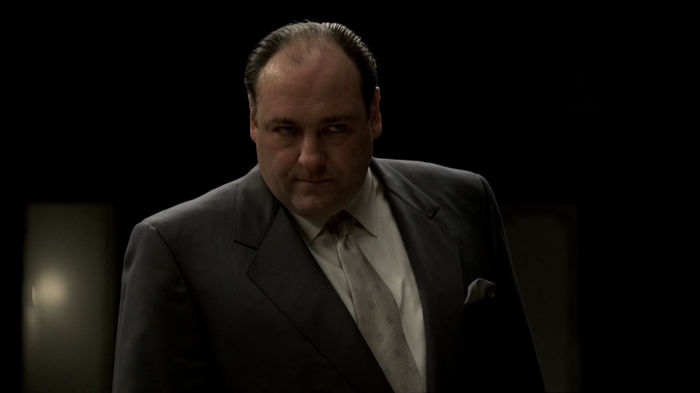Nitpicking HBO’s The Last of Us
Jacob Smith asks whether the latest season of The Last of Us lives up to the game

Video game adaptations have a prolifically bad reputation. From Andrzej Bartkowiak’s Doom, to Paul W.S. Anderson’s Resident Evil, the past two decades have been stained with trashy, low effort adaptations. Then HBO released The Last of Us. Directed with meticulous oversight by game creator Neil Druckmann, the show stood out among a sea of superficial cash-grabs. It exposed us to Joel (Pedro Pascal) and Ellie (Bella Ramsey) as the duo traversed a post-apocalyptic USA in hopes of ending the fungal outbreak responsible, inviting us to follow the morally challenging yet endlessly addictive narrative. Yet, despite its plethora of nominations, unceasing stream of praise, and stellar cast, I can’t ignore a sense of inferiority to the game franchise it was born from, growing all the more prominent as we venture into the second season.
Having played both games in the franchise, I, and other ‘gamers’, may have two experiences running parallel to each other as we watch the show. As a stand-alone project we see the captivating narrative of post-apocalyptic life we fell in love with, in which humans are far worse than any zombie. Yet, as an adaptation, we observe changes that cast our minds to the game, wishing to play it once more. When making new material, the show reaches heights I never imagined, but when adapting characters and plot points, it is beginning to fall short.
“When adapting characters and plot points, it is beginning to fall short”
Let’s look at the (mis)characterisation of Abby, played in the show by Kaitlyn Dever. A clear effort was made to elicit empathy for Abby immediately, by rearranging crucial narrative beats experienced in the game. The first is a dream sequence, which showcases the trauma the loss of Abby’s father to Joel’s rampage in the hospital in season 1 left her with, pushed to episode 2, rather than over 15 hours into the game experience.
The second is the confessional, near-Shakespearean monologue Abby delivers in the same episode. The dialogue alone felt close to character assassination, having Abby flirt with Joel, stroke his face, and appear closer to a ‘femme fatale’ than a force of nature bent on revenge. Joel’s ‘get it over with’ is spoken immediately in the game and prompts a ruthless and motiveless attack from Abby, whereas the show clumsily places it after a near 5 minute monologue. You could argue these changes were helpful, allowing an audience to understand and align with Abby, whilst maintaining a hatred needed to keep them equally close to Ellie; likely in response to the controversy the video game counterpart, The Last of Us: Part II, received. In attempting to create a narrative balanced equally between Ellie and Abby, it initially portrayed Abby’s actions towards Joel as motiveless, lacking empathetic qualities, hoping to save these reveals for later, but unfortunately prompted some gamers to quit the experience in outrage.
“It sacrifices the moral complexity of Abby’s character to the altar of audience appeasement”
However, in removing this, it sacrifices the moral complexity of Abby’s character to the altar of audience appeasement. Abby works as a complex character entirely because the player begins the narrative hating her. Imagine a pendulum that needs to swing to the one side, it only does so if it begins its movement from an opposite point. This is what the game achieves with Abby, she makes the viewer’s feelings the pendulum, and provides them their own moral arc. They begin hating her, but as they are forced to get to know her, and her past is revealed, they come to sympathise with and care for the character they once hated. You could call it a high risk high reward gamble for the writers, engineering a character to be hated by viewers enough to want revenge but not enough to make someone quit the experience entirely. But these alterations remove the arc of the viewer, playing it safe, and risk eliciting a tempered dislike towards Abby, rather than the visceral hatred needed to carry them through Ellie’s revenge narrative.
Whilst season 2 highlights the sins of the adaptation, season 1 episode 3 shows the reverse. Written by Craig Mazin, the episode took a character seen briefly in the game, Bill, and remade him, not by rearranging moments, but by writing an entirely new character. Episodes of such poignance rarely grace the screen. Shows often work brilliantly as holistic pieces but individual episodes scarcely reach the quality this episode achieves. From the hyper-realistic portrayal of a strained, yet loving relationship, to their choice to end their lives together, the episode could exist as its own short film. It showcases the best of what the TV show has to offer for fans of the game. Something new, fresh, and poignant. I can only hope they attempt more moments like that. In the meantime, I would wholeheartedly recommend you to try the game to see what it gets right.
 News / Cambridge academics sign open letter criticising research funding changes22 February 2026
News / Cambridge academics sign open letter criticising research funding changes22 February 2026 News / University Council rescinds University Centre membership20 February 2026
News / University Council rescinds University Centre membership20 February 2026 News / Supporters protest potential vet school closure22 February 2026
News / Supporters protest potential vet school closure22 February 2026 News / Hundreds of Cambridge academics demand vote on fate of vet course20 February 2026
News / Hundreds of Cambridge academics demand vote on fate of vet course20 February 2026 Comment / A tongue-in-cheek petition for gowned exams at Cambridge 21 February 2026
Comment / A tongue-in-cheek petition for gowned exams at Cambridge 21 February 2026








